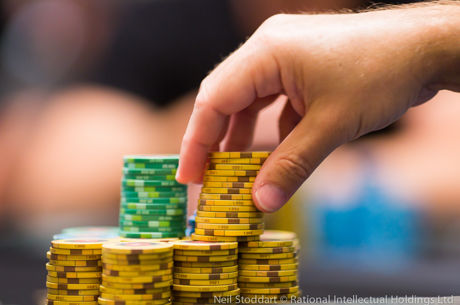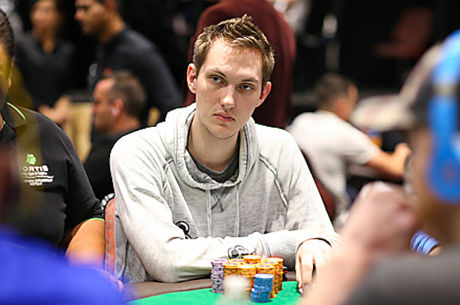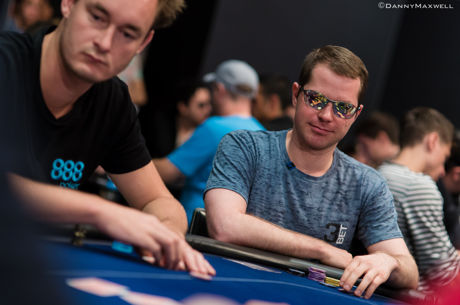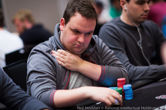Cooke's Corner: Reviewing Some Poker Basics
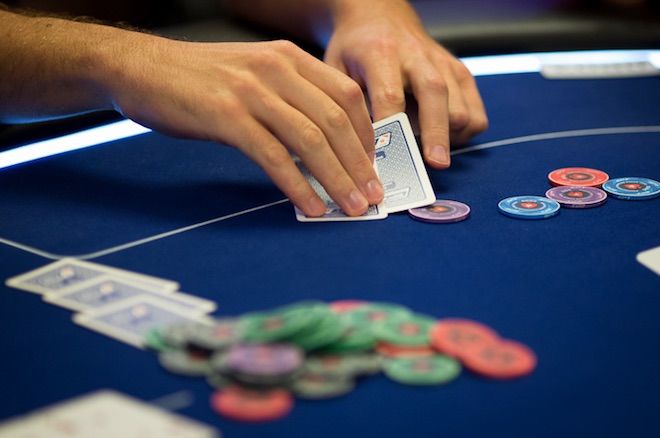
The recurring sum of volume (money wagered) multiplied by edge (expected win or loss) equals expectation or "EV" (expected value) �� (V x E) = EV. Over numerous trials, luck diminishes as a factor and becomes inconsequential. Then expectation will equal earn, the money you've won or lost.
All poker decisions should be quantified by expectation. It's not the nominal amount of the wager that counts; it's the expectation our bet(s) obtain. In the current hand we generally strive to make the optimal EV decisions. It doesn't matter whether we win or lose it. It only matters that we made the best possible decision. Yeah, I know it doesn't feel that way, but you need to get over that!
We won't always win as a favorite, nor always lose as an underdog. And it's very important to understand that poker decisions are interrelated. You can take a short EV price on one street/hand if that puts you in a position to receive positive EV on a future street/hand.
For example, receiving 3-to-1 pot odds on a small wired pair to flop a set is actually good if you can make up the expectation lost on the short preflop price after the flop. That said, many people overestimate future EV to justify negative EV plays �� don't do that! What counts is the total "implied price" we received from our wager/decision.
Implied price is the average amount of EV that you expect to gain or lose on future bets. The amount currently in the pot is a factor, as it is guaranteed, but the real price of the hand is the expectation, positive or negative, you can legitimately expect to receive now and on future streets.
A hand that has only +EV on future bets (e.g., the unbeatable nuts) possesses more value than a hand that will have some �CEV scenarios in its future (e.g., you draw to the second nut flush and will get stacked, drawing dead, every time the nut flush is out). In most cases, it's a best-guess estimate, and not quantifiable. That said, understanding the concept should enhance your decision process.
Over the course of time your EV will add or subtract up into the recurring sum field. The greater the number of +EV plays and the fewer �CEV plays, the higher the recurring sum number. Also, of great importance, is that the greater the volume of +EV plays, the higher the recurring sum number.
While a loose-aggressive strategy is the optimum way to play and the style you should strive to learn, you must play within your element to win.
Too tight players lose value by missing opportunities to make plays that would add value to their recurring sum field. To win the optimal amount of real money, maximize all positive opportunities. Of course, you must recognize them when they present themselves, and that takes a lot of knowledge.
The best players play a highly aggressive style. It creates turmoil in their opponents' minds, creating even more +EV opportunities for themselves. They wager more +EV money in more situations than their opponents, thereby creating a higher expectation. That said, it takes a very good situational reader to play this style effectively. If you don't have the requisite skill sets, don't do it.
While a loose-aggressive strategy is the optimum way to play and the style you should strive to learn, you must play within your element to win. Recognize your ability, and whether playing poker online or live try to play games/opponents that are beatable utilizing your current ability.
Grow your game slowly �� understand it is a marathon, not a sprint. If you have what it takes, you'll make it. If you push yourself beyond your abilities, you'll crash and burn, and the mental recovery may never occur. It's more important that you do make it, which few accomplish, than that you make it quickly!
A tight-aggressive strategy will still win money at the lower limits. Weak players will pay you off, and an occasional bluff will net additional +EV. And while you play this strategy, you should seek to improve your read of situations, plus envision situations where you can play more aggressively and increase your +EV wagering volume.
You must understand the game conceptually to make good decisions. This is all basic conceptual fundamentals and generally not exactly mathematically quantifiable. The goal in poker is to win money; that's the only way we keep score!
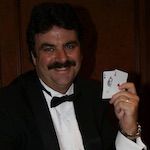
Roy Cooke played poker professionally for 16 years prior to becoming a successful Las Vegas Real Estate Broker/Salesman. Should you wish any information about Real Estate matters �� including purchase, sale or mortgage �� his office number is 702-376-1515 or Roy��s email is [email protected]. His website is www.RoyCooke.com, and more of his blogs and poker tips can be found at www.RoyCookePokerlv.com. You can also find him on Facebook or Twitter @RealRoyCooke.

